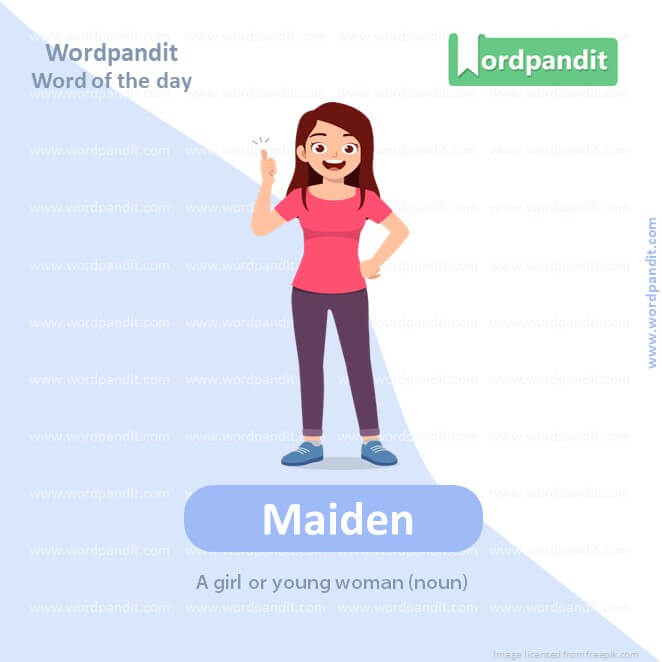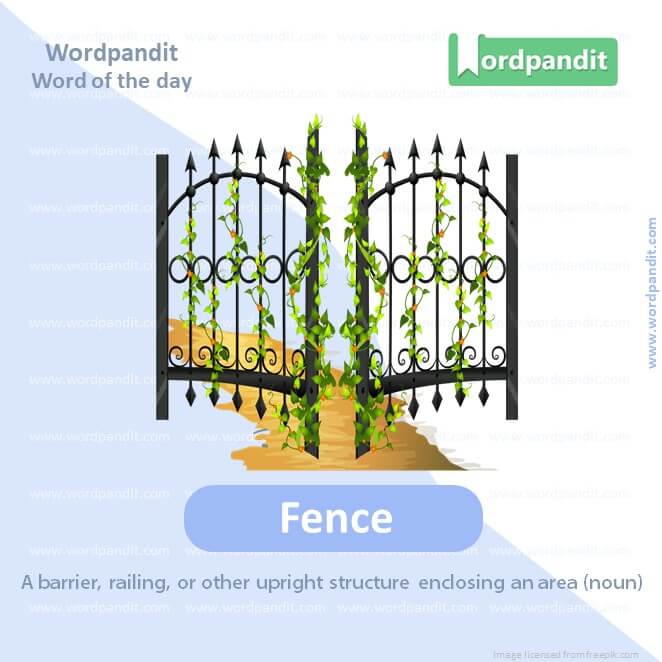Daily Vocabulary Words: List of Daily Used Words
Hi there. Welcome to this special section @ Wordpandit.
Our endeavour here is straightforward: highlighting important daily vocabulary words, you would encounter in The Hindu. This is your repository of commonly used words; essentially, we are posting a list of daily used words. Hence, this has significant practical application as it teaches you words that are commonly used in a leading publication such as The Hindu.
Visit the website daily to learn words from The Hindu.

WORD-1: Tricky
CONTEXT: Asked to bat first, half-centuries from skipper Tom Latham (68) and Glenn Phillips (71) helped the Black Caps post 288 for six. On a two-paced pitch, with the ball holding off the surface, Latham and Phillips combined well for a 144-run stand for the fifth wicket to bail their side out of a tricky situation and end up with an above-par score.
SOURCE: The Hindu
EXPLANATORY PARAGRAPH: Imagine you’re trying to hold a wiggly worm, and it keeps slipping out of your hand because it’s hard to hold. Well, “tricky” is like that worm. When something is tricky, it’s not easy to do or understand, just like that slippery worm isn’t easy to hold.
MEANING: Difficult to deal with or handle (adjective).
PRONUNCIATION: “TRICKee”
SYNONYMS: Complex, challenging, difficult, deceptive, slippery, elusive, perplexing.
USAGE EXAMPLES:
1. The puzzle was so tricky that I couldn’t solve it.
2. Be careful on that tricky bend in the road.
3. Magic tricks can often seem very tricky.
4. He asked a tricky question during the quiz.

WORD-2: Maiden
CONTEXT: Then Latham and Phillips played some old-fashioned one-day cricket, patiently rotating the strike through the middle-phase of the innings and even to play out the odd maiden.
SOURCE: The Hindu
EXPLANATORY PARAGRAPH: Think of a girl who’s never done something before, like riding a bike. The first time she rides, that’s her “maiden” ride. “Maiden” means “first time” or can also mean a young girl.
MEANING:
1. A girl or young woman (noun).
2. The first or earliest (adjective).
PRONUNCIATION: “MAYden”
SYNONYMS: Damsel, virgin, first, debut, initial, beginning, premier.
USAGE EXAMPLES:
1. The maiden voyage of the ship was very successful.
2. She is still a maiden and has never been married.
3. The prince rescued the maiden from the tower.
4. It was his maiden attempt at making a cake.

WORD-3: Swept
CONTEXT: The first sign of aggression came when Phillips swept Nabi over midwicket for a six before he guided Rashid down the fine-leg fence
SOURCE: The Hindu
EXPLANATORY PARAGRAPH: Imagine you have a broom, and you use it to push all the leaves outside. That action of moving or pushing with a broom is called “swept.”
MEANING: Past tense for having cleaned or moved with a broom or something similar (verb).
PRONUNCIATION: “SWEPT”
SYNONYMS: Brushed, cleared, pushed, scoured, wiped, whisked, tidied.
USAGE EXAMPLES:
1. He swept the floor clean of dust.
2. The wind swept the leaves away.
3. She swept her hair into a ponytail.
4. The floodwaters swept everything in their path.

WORD-4: Fence
CONTEXT: The first sign of aggression came when Phillips swept Nabi over midwicket for a six before he guided Rashid down the fine-leg fence
SOURCE: The Hindu
EXPLANATORY PARAGRAPH: You know how sometimes we have a barrier around our house or garden to keep things in or out? That barrier is called a “fence.”
MEANING: A barrier, railing, or other upright structure enclosing an area (noun).
PRONUNCIATION: “FENS”
SYNONYMS: Barrier, railing, wall, hedge, palisade, picket, enclosure.
USAGE EXAMPLES:
1. We built a wooden fence around our garden.
2. She leaned against the fence and watched the sunset.
3. The kids love to paint the fence during summer.
4. The fence keeps the dogs from running out into the street.

WORD-5: Fascination
CONTEXT: While there are different theories to her genesis, with Larsson being quite the unreliable narrator, apart from introducing a bunch of novels with “The Girl” in the title into the world, Lisbeth was also responsible for the latest wave of fascination for “Nordic noir”.
SOURCE: The Hindu
EXPLANATORY PARAGRAPH: Have you ever seen something so cool or interesting that you can’t stop looking or thinking about it? That feeling of being super interested and amazed is called “fascination.”
MEANING: Intense interest or attraction (noun).
PRONUNCIATION: “fasssinAYshun”
SYNONYMS: Interest, allure, attraction, captivation, enchantment, infatuation, obsession.
USAGE EXAMPLES:
1. She had a fascination with the stars.
2. The magic show held the children’s fascination.
3. His tales of adventure sparked her fascination.
4. The mysteries of the deep sea are a source of fascination for many.
WORD-6: Snowscapes
CONTEXT: Nordic or Scandinavian noir are mainly police procedurals where bleakly beautiful snowscapes hide brutal crimes.
SOURCE: The Hindu
EXPLANATORY PARAGRAPH: Imagine looking outside after a big snowfall, and everything is covered in white, fluffy snow. That beautiful snowy view is called a “snowscape.”
MEANING: A scene or view of a place covered with snow (noun).
PRONUNCIATION: “SNOWskapes”
SYNONYMS: Snow scene, winter landscape, snow view, wintry scene, frosty panorama, icy vista, snowy setting.
USAGE EXAMPLES:
1. The artist painted beautiful snowscapes of the mountains.
2. After the blizzard, the town transformed into a stunning snowscape.
3. We took photos of the breathtaking snowscapes during our trip.
4. I love the serene feeling of looking at snowscapes.
WORD-7: Obscure
CONTEXT: The detective leading the investigation, while blessed with insight and a way of making obscure connections, is no superhuman.
SOURCE: The Hindu
EXPLANATORY PARAGRAPH: Let’s say you’re trying to look through a foggy window, and you can’t see clearly. When something is hard to see or understand, like that foggy window, we say it’s “obscure.”
MEANING: Not clear or well-known; difficult to see or understand (adjective).
PRONUNCIATION: “obSKYUR”
SYNONYMS: Unclear, vague, ambiguous, mysterious, hidden, cloudy, unclear.
USAGE EXAMPLES:
1. The path ahead was obscure because of the thick fog.
2. She is a singer from an obscure band in a small town.
3. The meaning of the poem remained obscure to many.
4. The old book contained obscure references.
WORD-8: Poignantly
CONTEXT: Wallander struggles with diabetes, a failed marriage and poignantly dementia in the 12th Wallander novel, The Troubled Man.
SOURCE: The Hindu
EXPLANATORY PARAGRAPH: Have you ever felt something so deeply and strongly that it almost makes you want to cry? When something touches your heart in a strong way, it’s happening “poignantly.”
MEANING: In a way that evokes a keen sense of sadness or regret (adverb).
PRONUNCIATION: “POYNyantlee”
SYNONYMS: Touchingly, movingly, affectingly, sadly, heartbreakingly, emotively, deeply.
USAGE EXAMPLES:
1. The movie ended poignantly, leaving many in tears.
2. She spoke poignantly of her lost childhood.
3. The photograph captured the moment poignantly.
4. The music played poignantly in the background.
WORD-9: Dementia
CONTEXT: Wallander struggles with diabetes, a failed marriage and poignantly dementia in the 12th Wallander novel, The Troubled Man.
SOURCE: The Hindu
EXPLANATORY PARAGRAPH: Sometimes, as people get very old, their brains don’t work as well as they used to, and they might forget things or get confused easily. This condition where their thinking and memory get worse is called “dementia.”
MEANING: A chronic disorder caused by brain disease or injury, marked by memory disorders, personality changes, and impaired reasoning (noun).
PRONUNCIATION: “dihMENsh”
SYNONYMS: Senility, cognitive decline, mental deterioration, forgetfulness, memory loss, brain disorder.
USAGE EXAMPLES:
1. Her grandmother was diagnosed with dementia last year.
2. Dementia can be challenging for both the person affected and their family.
3. There are many support groups for families dealing with dementia.
4. Researchers are looking for ways to prevent dementia.
WORD-10: Savagery
CONTEXT: Despite all the horrors of human trafficking, animal harm, mutilation, unbridled savagery and neo-Nazis, The Girl With the Dragon Tattoo is, at its heart, a tribute to Agatha Christie.
SOURCE: The Hindu
EXPLANATORY PARAGRAPH: Imagine a wild animal hunting and acting fierce. When something is very fierce, violent, or without control, we call that “savagery.”
MEANING: The quality of being fierce, violent, or without moral restraint (noun).
PRONUNCIATION: “SAVuhjree”
SYNONYMS: Brutality, ferocity, barbarity, cruelty, fierceness, ruthlessness.
USAGE EXAMPLES:
1. The savagery of the storm left the town in ruins.
2. Historical accounts detail the savagery of ancient battles.
3. The movie depicted the savagery of nature.
4. The lion attacked with pure savagery.
Vocabulary Daily Words
Among the myriad aspects of language learning, the role of ‘vocabulary daily words’ attests to their undeniable importance. These everyday words form the bedrock of communication. Whether used in casual chat or formal discussion, the fluency and understanding of ‘vocabulary daily words’ can significantly uplift the quality of interaction. However, the vital question is, how to effectively learn these ‘vocabulary daily words’?
The crux of learning ‘vocabulary daily words’ lies in a well-rounded approach that encompasses exposure, understanding, memorization, and practice. Rote memorization might seem like a quick solution, but it lacks context and, thereby, retention. Hence, opt for a diverse range of resources like books, newspapers, podcasts, and digital media. These will bring ‘vocabulary daily words’ to life, providing real-life usage examples and making the learning process inherently engaging.
Next, using memory-enhancing techniques can significantly improve retention of ‘vocabulary daily words’. Techniques such as flashcards or the Leitner System align with the principles of spaced repetition, allowing more effective and long-term learning. Incorporating mnemonic devices, associating new words with unique stories or images, can further facilitate this learning process.
The key to fully grasping ‘vocabulary daily words’ lies in practical usage. Make it a habit to use these words in your daily communications. Whether it’s a friendly conversation, a professional email, or a social media post, try integrating these new words. Doing so provides hands-on practice, strengthening your comprehension and application of these words.
In a nutshell, ‘vocabulary daily words’ are a treasure in the language learning landscape. By harnessing diversified resources, utilizing memory techniques, and actively using these words, your grip on the ‘vocabulary daily words’ will strengthen significantly. So, turn the pages, hit play, start a conversation, and let these ‘vocabulary daily words’ shape the story of your linguistic journey.










